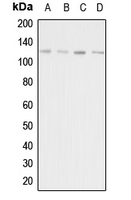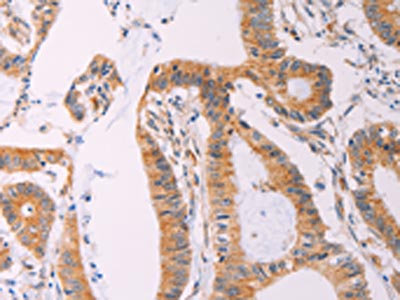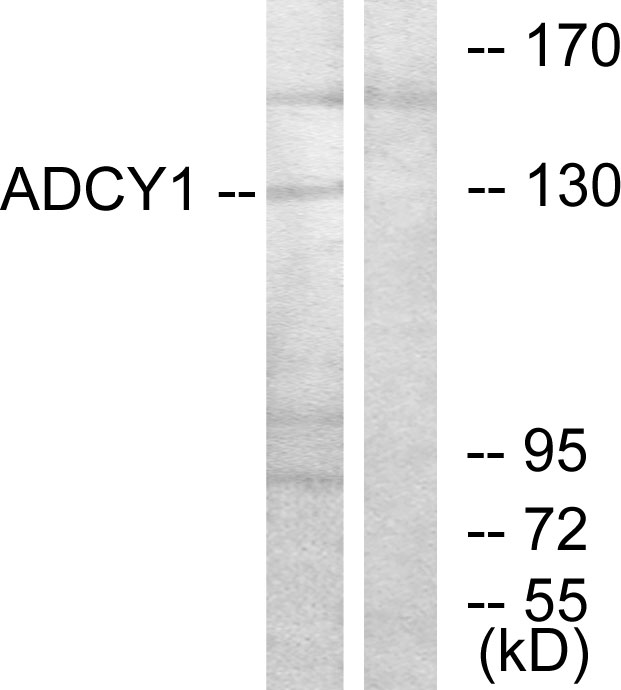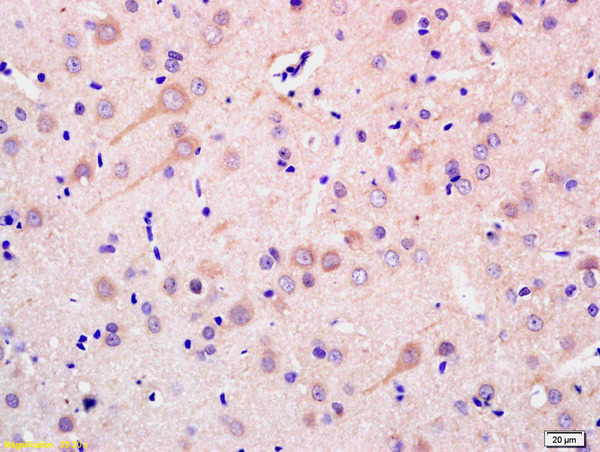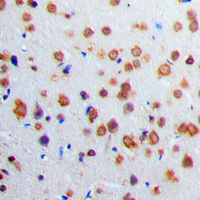
IHC-P analysis of formalin fixed human brain tissue section using GTX54886 Adenylate cyclase 1 antibody. Antigen retrieval : Heat mediated antigen retrieval with sodium citrate buffer (pH 6.0)
Adenylate cyclase 1 antibody
GTX54886
ApplicationsWestern Blot, ImmunoHistoChemistry, ImmunoHistoChemistry Paraffin
Product group Antibodies
ReactivityHuman, Mouse, Rat
TargetADCY1
Overview
- SupplierGeneTex
- Product NameAdenylate cyclase 1 antibody
- Delivery Days Customer9
- Application Supplier NoteWB: 1:500 - 1:1000. IHC-P: 1:100 - 1:200. *Optimal dilutions/concentrations should be determined by the researcher.Not tested in other applications.
- ApplicationsWestern Blot, ImmunoHistoChemistry, ImmunoHistoChemistry Paraffin
- CertificationResearch Use Only
- ClonalityPolyclonal
- ConjugateUnconjugated
- Gene ID107
- Target nameADCY1
- Target descriptionadenylate cyclase 1
- Target synonymsAC1, DFNB44, adenylate cyclase type 1, 3',5'-cyclic AMP synthetase, ATP pyrophosphate-lyase 1, Ca(2+)/calmodulin-activated adenylyl cyclase, adenyl cyclase, adenylate cyclase 1 (brain), adenylate cyclase type I, adenylyl cyclase 1, adenylyl cyclase subtype 1
- HostRabbit
- IsotypeIgG
- Protein IDQ08828
- Protein NameAdenylate cyclase type 1
- Scientific DescriptionThis gene encodes a member of the of adenylate cyclase gene family that is primarily expressed in the brain. This protein is regulated by calcium/calmodulin concentration and may be involved in brain development. Alternate splicing results in multiple transcript variants. [provided by RefSeq, Aug 2013]
- ReactivityHuman, Mouse, Rat
- Storage Instruction-20°C or -80°C,2°C to 8°C
- UNSPSC41116161

